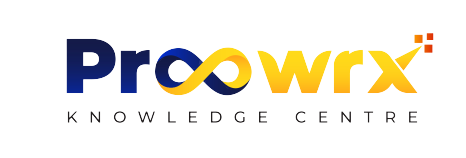In Australia, mortgage brokers must follow strict financial and legal rules. These rules aim to ensure the lending process is fair, transparent, and honest. They can be complicated and often change, so training staff properly is key to handling compliance checks successfully. This blog will show you how to train your staff to excel in compliance audits and help your business succeed.
Why Compliance Matters in Australia
Compliance is a cornerstone of the mortgage broking industry in Australia. It ensures that all operations align with the stringent standards set by regulatory bodies, ultimately protecting both consumers and businesses. In an industry where trust and transparency are paramount, adhering to compliance not only avoids legal repercussions but also builds credibility with clients. A strong compliance culture helps safeguard your business from potential fines, legal actions, and reputational damage, while also ensuring that clients receive fair and ethical service.
In Australia, the regulatory environment for mortgage brokers is rigorous, designed to maintain the integrity of the financial system and protect consumers from unethical practices. Understanding and adhering to these regulations is crucial for the sustainability and success of any mortgage broking business. Here’s a look at the key frameworks that govern the industry:
- Australian Securities and Investments Commission (ASIC): ASIC monitors financial services, including mortgage brokers, to make sure they follow the National Consumer Credit Protection Act (NCCP Act) and other financial rules.
- National Consumer Credit Protection Act (NCCP Act): This act sets out rules for responsible lending, requiring brokers to offer loans that are suitable and affordable for clients.
- Privacy Act 1988: This law regulates how personal information is handled, ensuring that brokers manage client data securely and responsibly.
- Anti-Money Laundering and Counter-Terrorism Financing (AML/CTF) Act: Brokers must take steps to prevent money laundering and terrorism financing.
Following these rules is not just about avoiding penalties; it’s also about protecting consumers, keeping the market fair, and maintaining your business’s good reputation.
Step 1: Develop a Training Program
Assess Training Needs
Start by checking your staff’s current knowledge and skills. Use surveys or assessments to identify where they need more training. This will help you create a focused program that addresses these specific gaps.
Design Training Modules
Create training modules covering essential compliance areas for Australian mortgage brokers:
- Regulatory Overview: Explain ASIC rules, NCCP Act requirements, Privacy Act obligations, and AML/CTF standards.
- Documentation and Record-Keeping: Best practices for keeping accurate records of loan applications, client communications, and compliance documents.
- Ethical Practices: Guidelines for ethical behavior and handling conflicts of interest.
- Audit Preparation: Tips for preparing for audits, including organizing documents and responding to auditor questions.
Include Real-Life Scenarios
Use case studies and real-life examples specific to the Australian mortgage market. These help staff see how regulations apply in different situations and improve their problem-solving skills.
Utilize Various Training Methods
Offer different training methods to suit various learning styles:
- Classroom Training: In-person sessions for in-depth discussions and interactive Q&A.
- E-Learning: Online modules for flexible, self-paced learning.
- Written Materials: Manuals, guides, and checklists for reference.
Step 2: Emphasize Continuous Education
Regular Updates on Regulations
Compliance rules can change, so keep your staff updated with regular updates and refresher courses on new requirements and best practices.
Encourage Professional Development
Support staff in obtaining certifications or attending industry seminars and conferences. This ongoing learning enhances their knowledge and shows your commitment to high standards.
Create a Compliance Culture
Promote a culture where compliance is a core value. Recognize and reward staff who excel in following regulations. Making compliance an integral part of their role will highlight its importance.
Step 3: Implement Effective Monitoring and Feedback Systems
Establish Clear Compliance Procedures
Create and clearly communicate procedures for all compliance tasks. Make sure staff understand these procedures and know where to find help.
Conduct Regular Internal Audits
Carry out internal audits regularly to spot potential compliance issues before they become serious. Use these audits to give feedback and guidance, helping staff improve.
Provide Constructive Feedback
Give helpful feedback based on staff performance in compliance tasks. Point out areas for improvement and offer practical recommendations to boost their skills.
Use Performance Metrics
Track performance metrics related to compliance, like error rates or audit findings. Use this information to spot trends and areas needing more training.
Step 4: Prepare for the Audit Process
Conduct Pre-Audit Reviews
Before an official audit, do internal pre-audit reviews to practice the audit process. This helps staff get ready by simulating questions and document requirements.
Develop an Audit Response Plan
Create a detailed plan for handling audit requests and inquiries. Make sure staff know their roles and have access to the needed documentation and resources.
Role-Play Audit Scenarios
Have staff participate in role-playing exercises to practice audit scenarios. This builds their confidence, improves communication, and prepares them for actual audits.
Review Past Audit Findings
Look at previous audit results to identify common issues and areas for improvement. Use these insights to refine your training and address recurring challenges.
Step 5: Leverage Technology for Compliance Management
Implement Compliance Management Software
Use compliance management software to simplify tracking regulations, managing documents, and monitoring compliance. These tools help automate tasks and reduce errors.
Use Data Analytics
Use data analytics to understand compliance performance and find potential issues. Analytics help track trends, measure training effectiveness, and make informed decisions.
Ensure Data Security
Put strong data security measures in place to protect sensitive information. Train staff on best practices for data protection and emphasize the importance of client confidentiality.
Bottom Line
Training your staff to handle mortgage broker compliance audits effectively is an ongoing process. It requires a structured approach and a focus on continuous improvement. By creating a detailed training program, focusing on regular education, setting up good monitoring and feedback systems, preparing for audits, and using technology, you can ensure your team meets Australian regulatory standards and helps your business succeed.
If managing compliance is challenging or you need expert help, Proowrx is here for you. We specialize in mortgage broker compliance in Australia and can handle audits with precision. Our team can take care of compliance so you can focus on providing excellent service to your clients. Contact Proowrx today to find out how we can support your compliance needs and help you succeed in your business.
Investing in thorough compliance training and expert support will not only prepare your staff for audits but also improve your organization’s reputation and success in the competitive Australian mortgage market.

